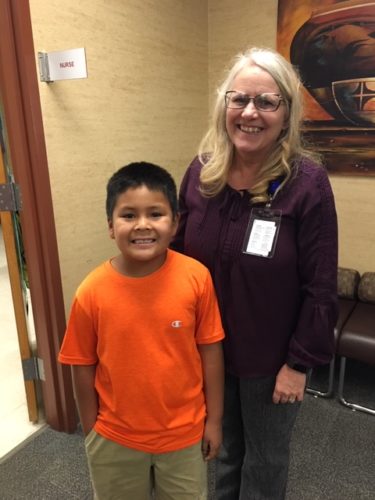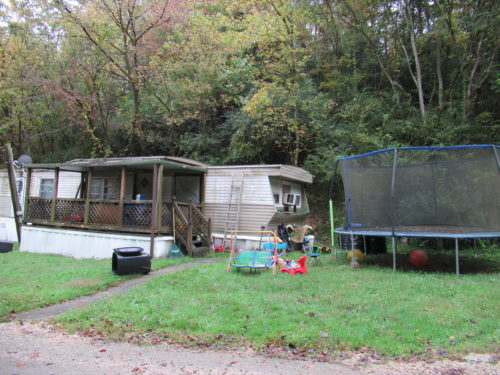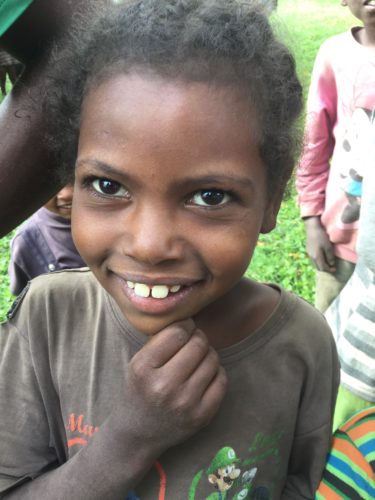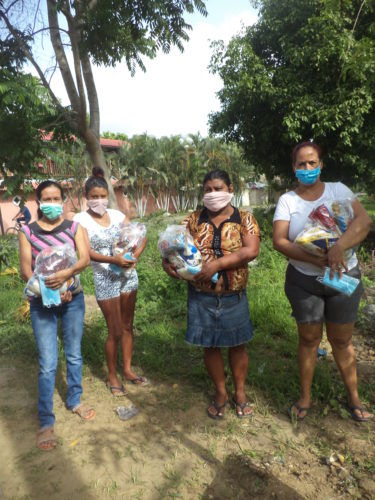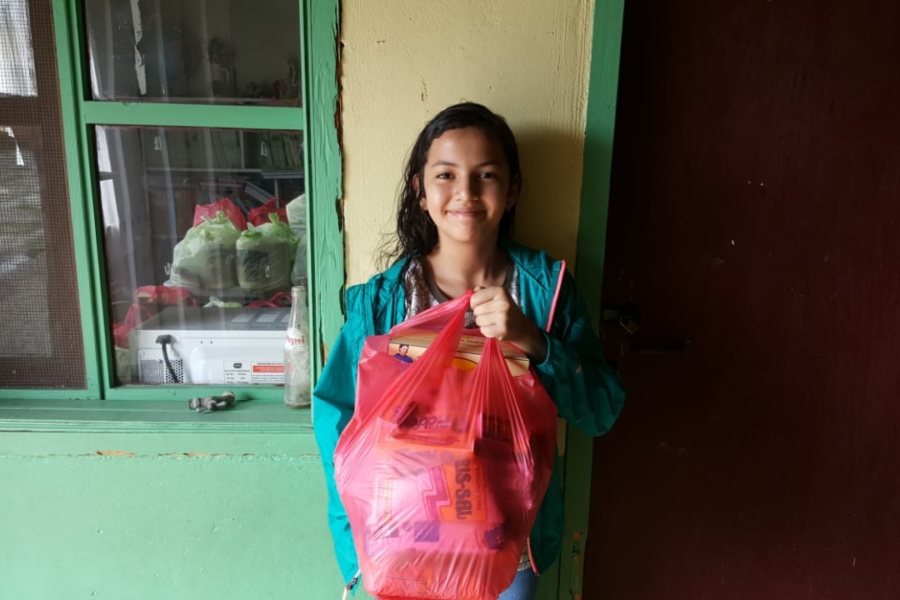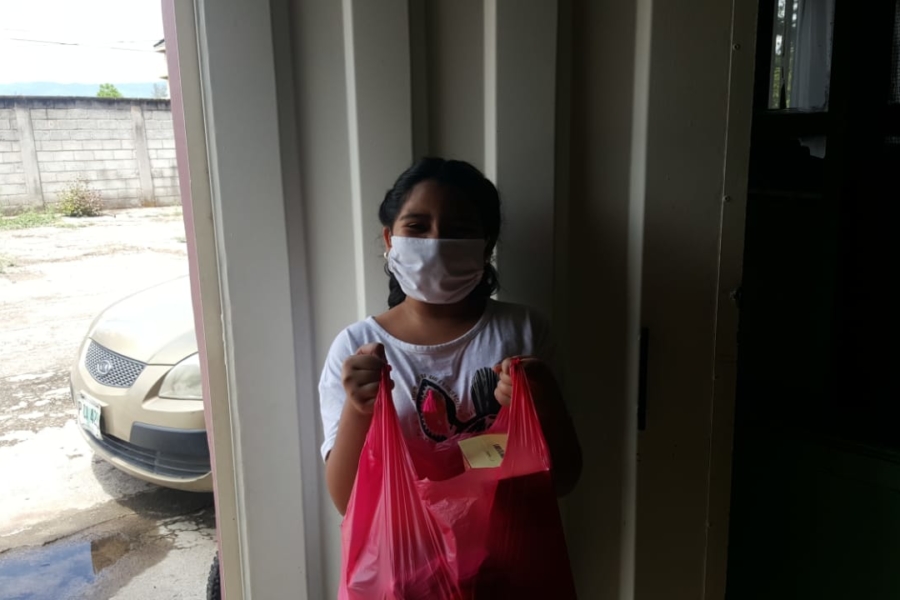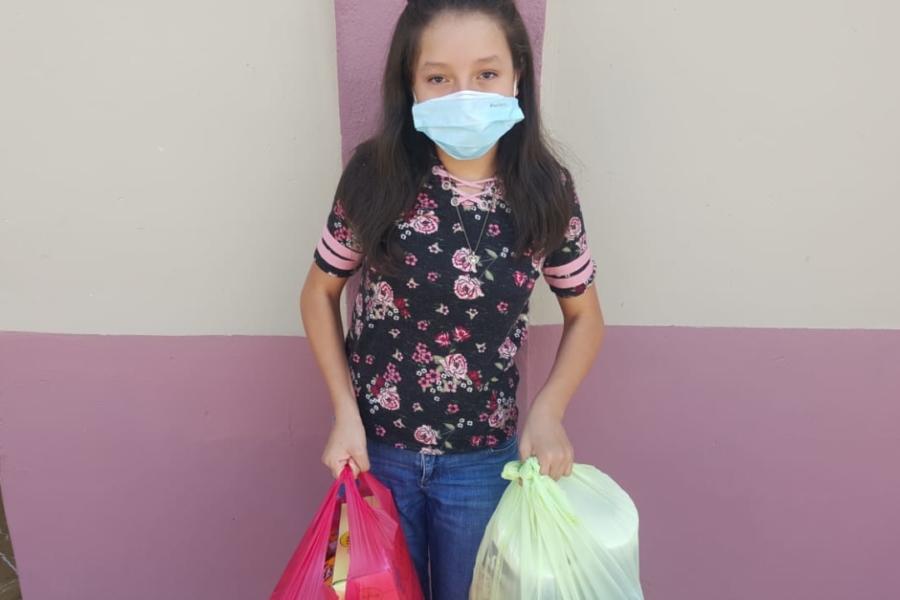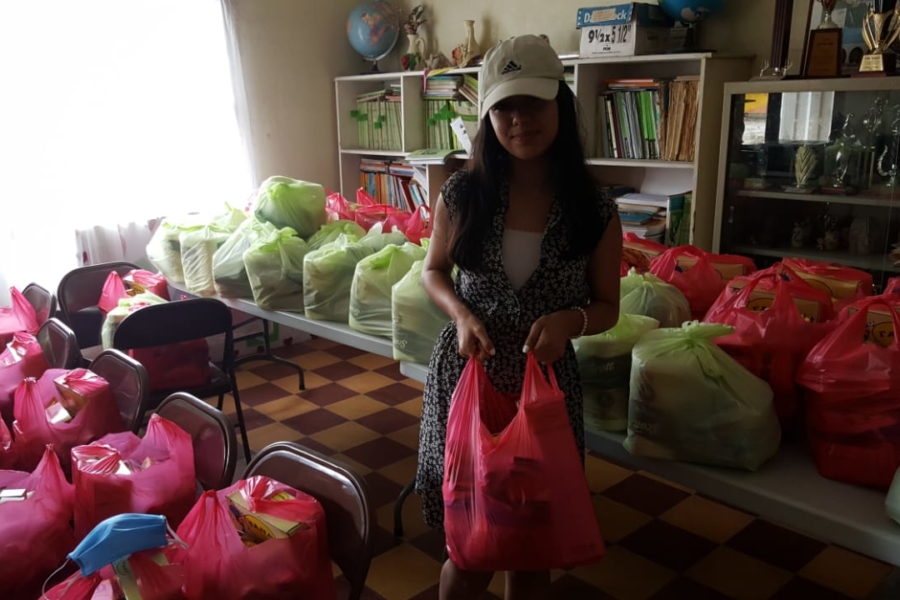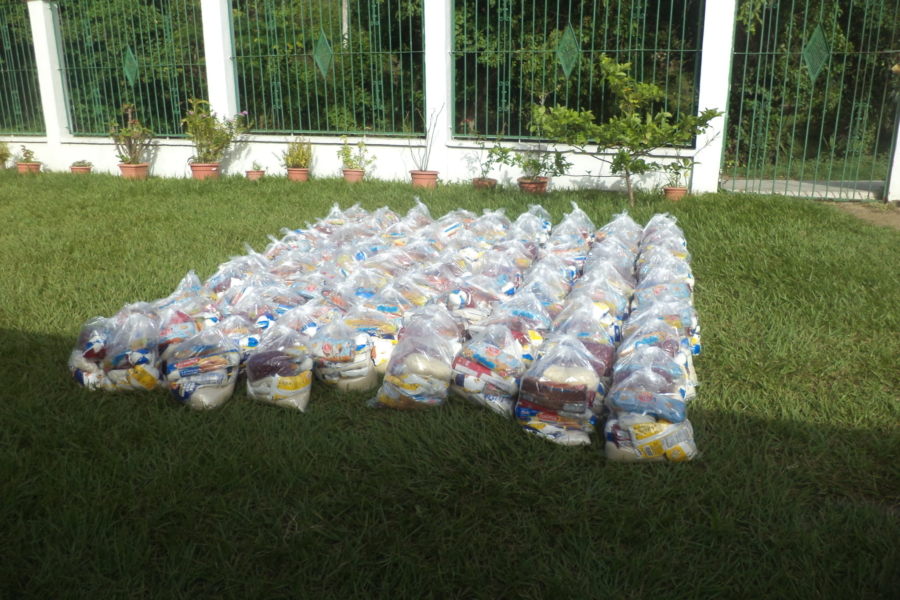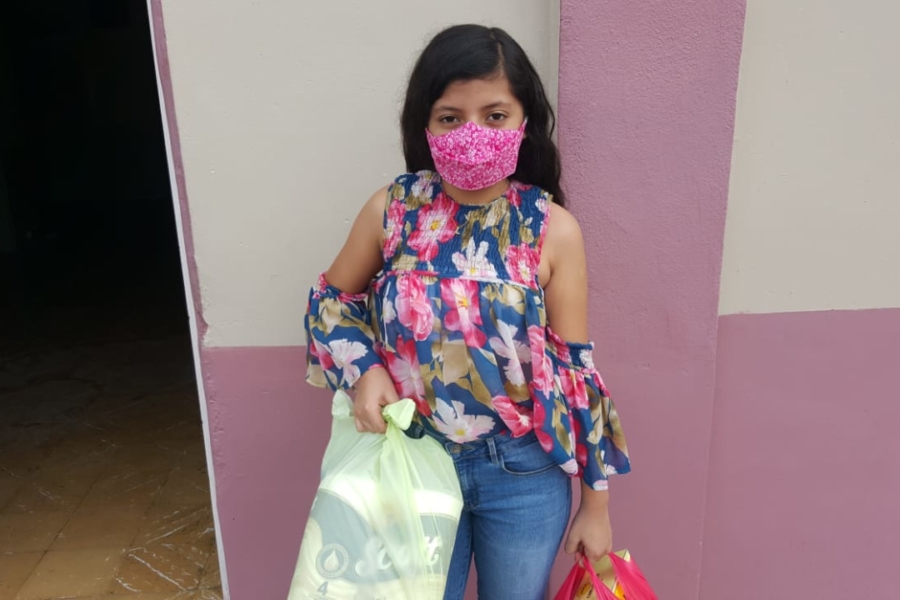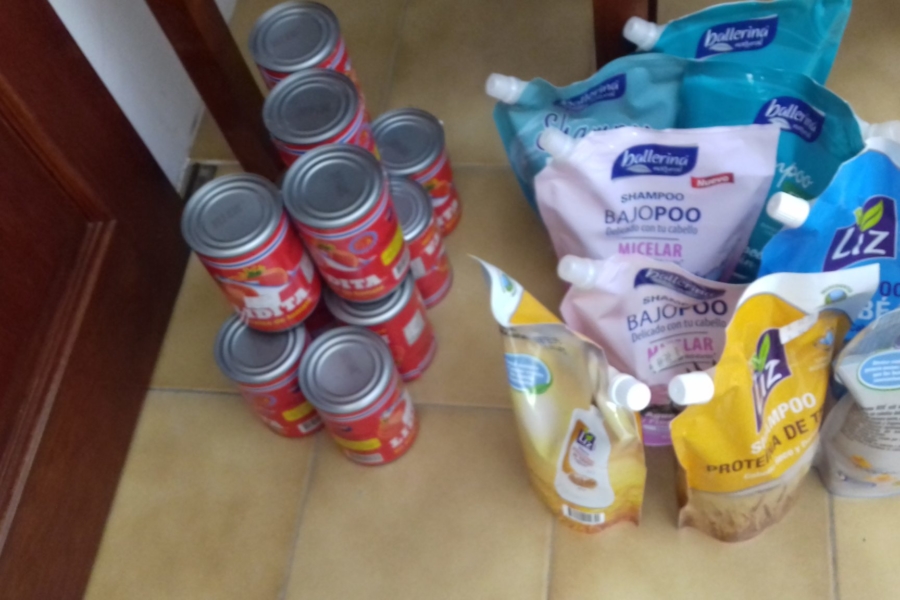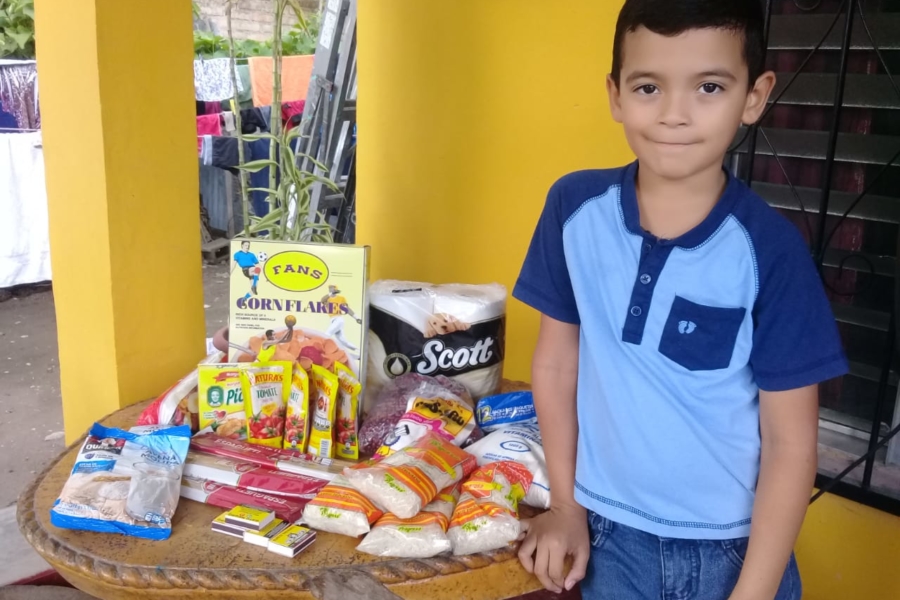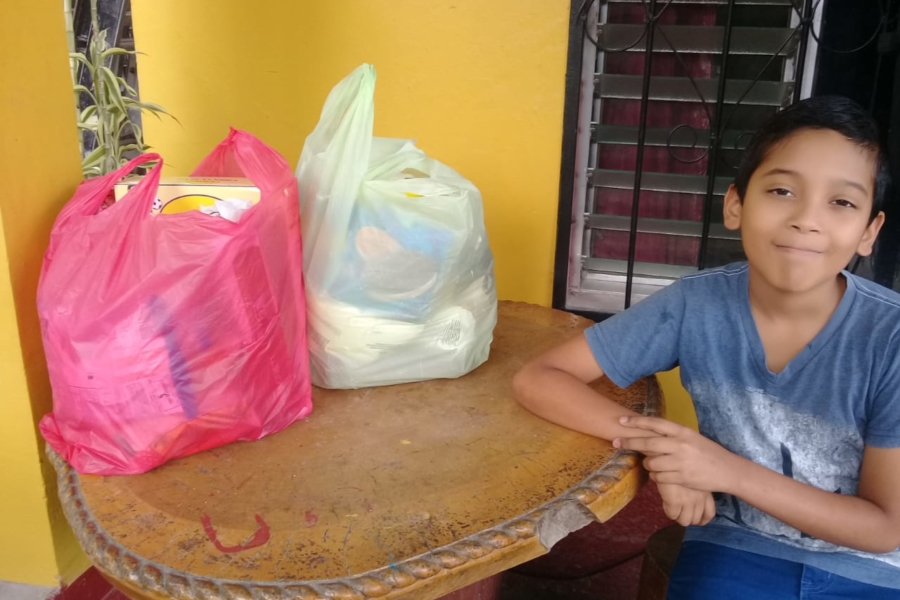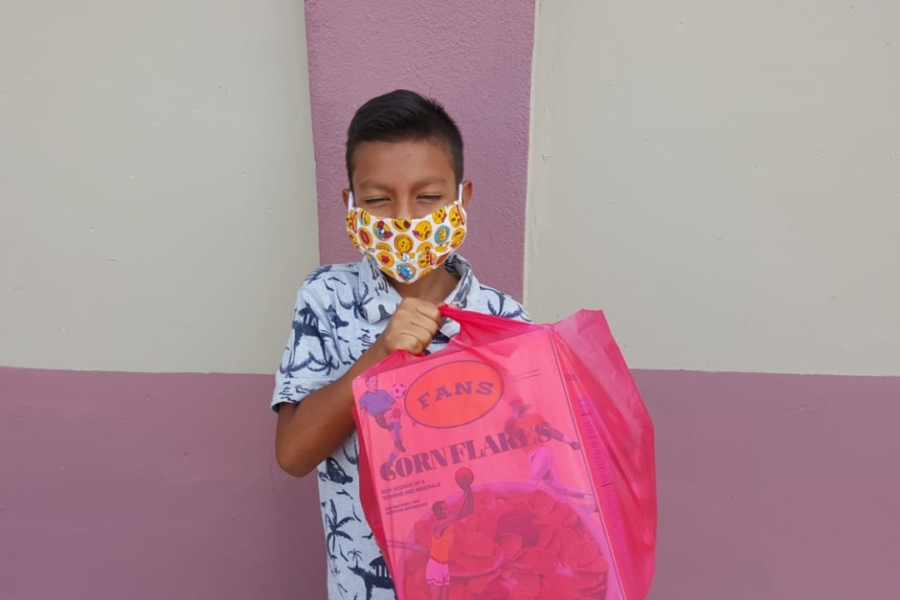We are pleased to share with you our 2020 Fall Newsletter! Thank you for support children in need around the world during the COVID-19 outbreak.
Amidst school closures across the U.S. this past spring due to COVID-19 lockdowns, our concern turned to how to best help children who are already living in vulnerable situations.
Fighting Against Hunger During the Pandemic
Amidst school closures across the U.S. this past spring due to COVID-19 lockdowns, our concern turned to how to best help children who are already living in vulnerable situations.
Many children in our program rely on school lunches and on our Backpack Feeding Program to ensure they are receiving adequate meals throughout the day and on the weekends. Without the support they receive at school, they risk facing hunger at home.
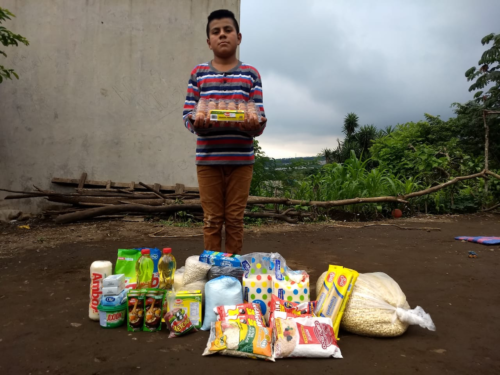
Children in Guatemala have been receiving food thanks to donations from our amazing donors.
Thankfully, because of our sponsors and donors, and the hard work of our volunteer coordinators in the U.S., students continued to receive food through the spring and into the summer and fall.
Thank you for all that you do to help children in need!
Our Response to COVID-19 in Guatemala
We are grateful for the support that our sponsors and donors are providing to families in Guatemala — and all over the world — through donations to our COVID-19 Response Fund.
Thanks to you, our affiliated projects in Guatemala have been able to purchase food, hygiene items, and other necessities for children and their families during the pandemic. This help is crucial for Guatemalans at this time, as our Director of International Programs, Luis Bourdet, explains:
“Almost half of the population in Guatemala are low-income earners, and the percentage of people receiving aid is minimal. No one having an income above the minimum wage of about US $220 a month has received any government support.”
We are grateful for your vital support during the COVID-19 crisis — we couldn’t provide life-changing support to children in need without your help.
Alleviated Suffering in Bolivia During a Difficult Time
We heard from our volunteer coordinator at our affiliated project, Cristo de Rey in Bolivia, about the support our donors are providing to children and their families during the COVID-19 outbreak:
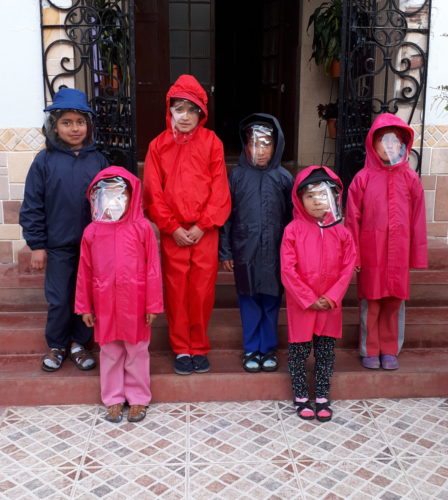
Protective and hygiene items have been just some of the supplies children have received during the COVID-19 pandemic.
“Good afternoon! I want to inform you that the Children Incorporated program is supporting children with the distribution of food and hygiene items.
The situation of the pandemic in Bolivia is very complicated. Families suffer a lot because they are people with very low resources. They generally live on what they earned from what little they sell. Now it is forbidden to go out to sell and they have nothing to subsist on. As you can imagine, the families are very grateful for the help and support they received. Thank you for your help!”
Children Incorporated Happenings
*The Children Incorporated family mourns the loss of George Saunders, a long-time employee who passed away on June 6, 2020. Mr. Saunders served as our accountant and bookkeeper for a period of 27 years, prior to his retirement in 2009. He maintained close contact with Children Incorporated in the years that followed, often attending employee functions, as well as sponsoring children. He will be greatly missed.
*Our Board of Directors welcomed three new members in May. Mr. Wayne Huggins, Ms. Salley Mountcastle, and Dr. Theresa Steward will now work alongside our seven existing members in supporting the work of our organization as we strive to improve the lives of children and families, both in the U.S. and abroad.
*Children Incorporated has once again been awarded 4 Out of 4 Stars by Charity Navigator. This is the fifth consecutive time that our organization has received this honor.
Children Incorporated has once again been awarded 4 Out of 4 Stars by Charity Navigator. This is the fifth consecutive time that our organization has received this honor.
*We would like to send congratulations to our long-time sponsor, Rosanne Cash, who has been selected to receive the prestigious 61st Annual Edward McDowell Medal. The award, which has previously gone to such luminaries as Aaron Copeland, Stephen Sondheim, Leonard Berstein, and Georgia O-Keefe, honors artists who have made outstanding contributions to American culture, as Rosanne surely has through her music and compositions. We thank Rosanne for sponsoring children and changing lives through her support of our organization, now for thirty years and counting.
*Children Incorporated continues to work towards expanding our sponsorship program to include projects in Puerto Rico, but due to the COVID-19 outbreak, plans have been postponed. We remain committed to getting the program off the ground as soon as possible and continuing our work on the island, which has been hard hit by natural disasters. If you would like to be added to our waiting list of those who wish to sponsor a Puerto Rican child, please contact us today. We will share further details about our work in Puerto Rico as it becomes available.
READ THE FULL NEWSLETTER
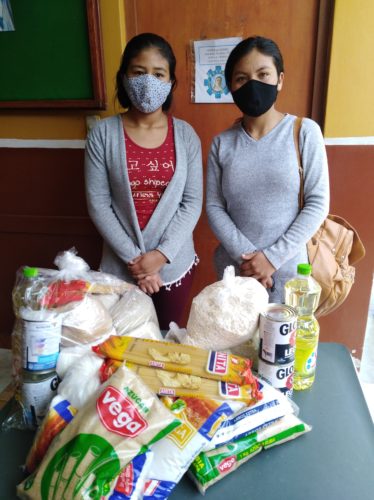

 Beyond just encouraging reading among students, AR also provides:
Beyond just encouraging reading among students, AR also provides: